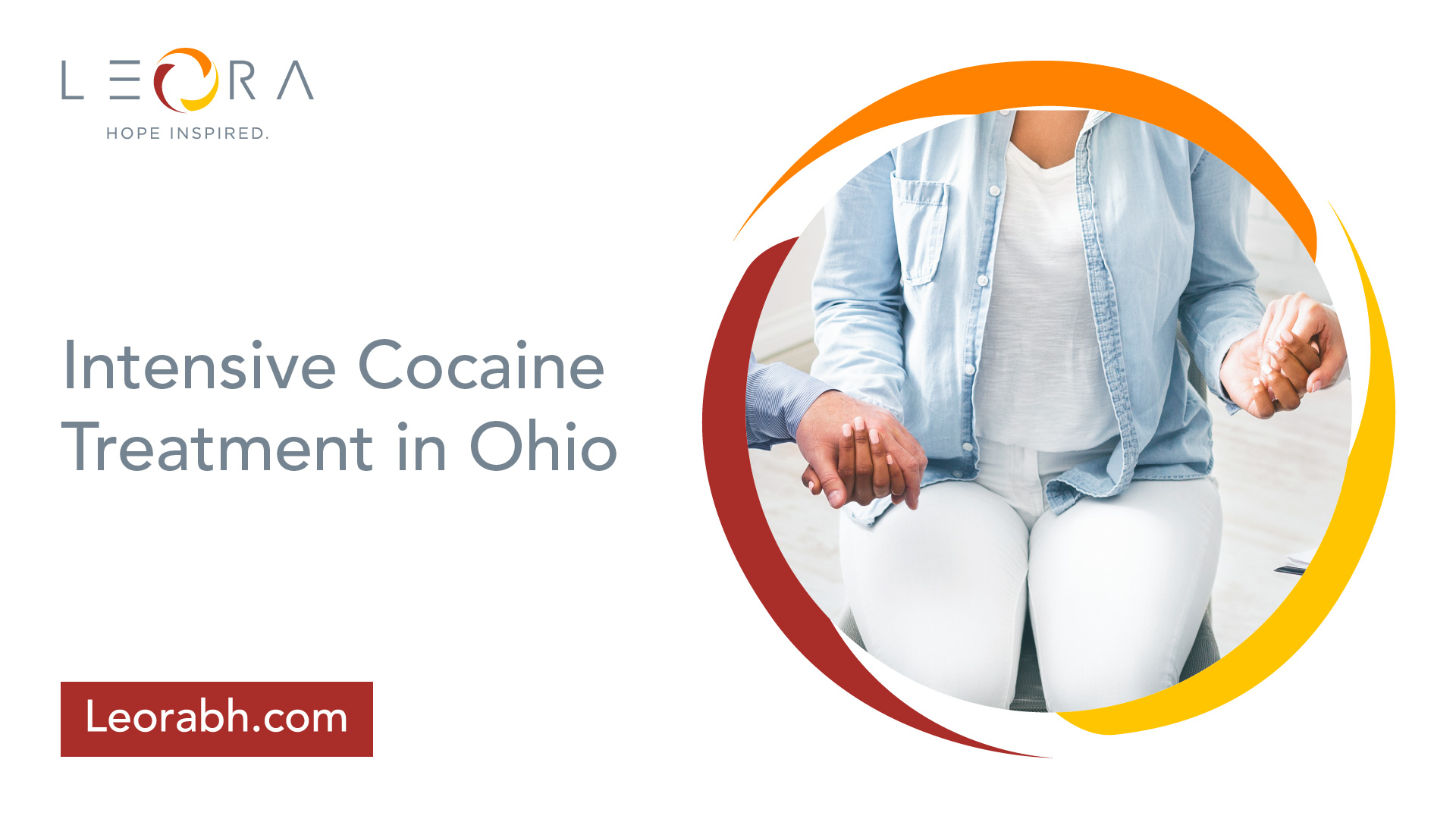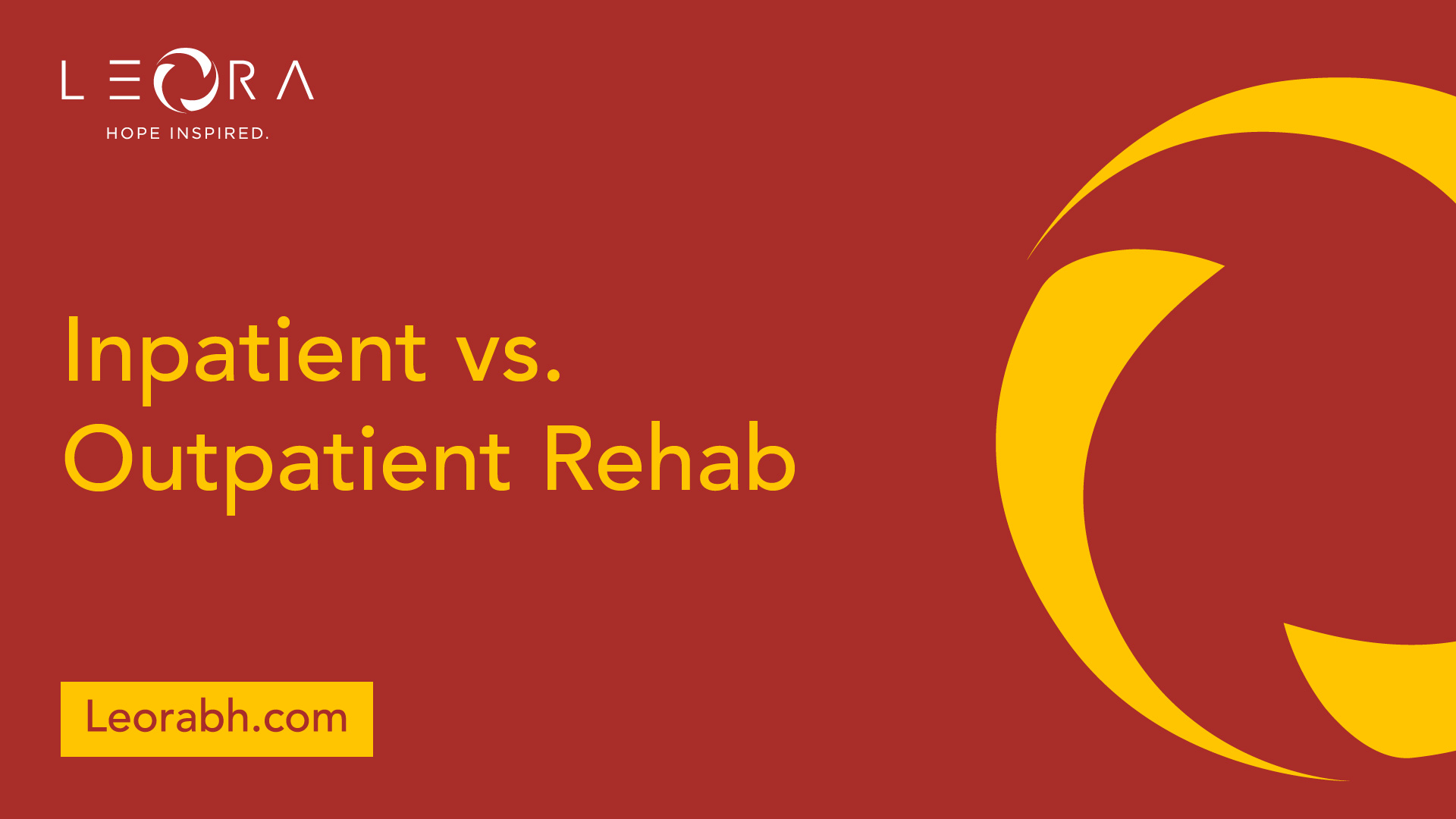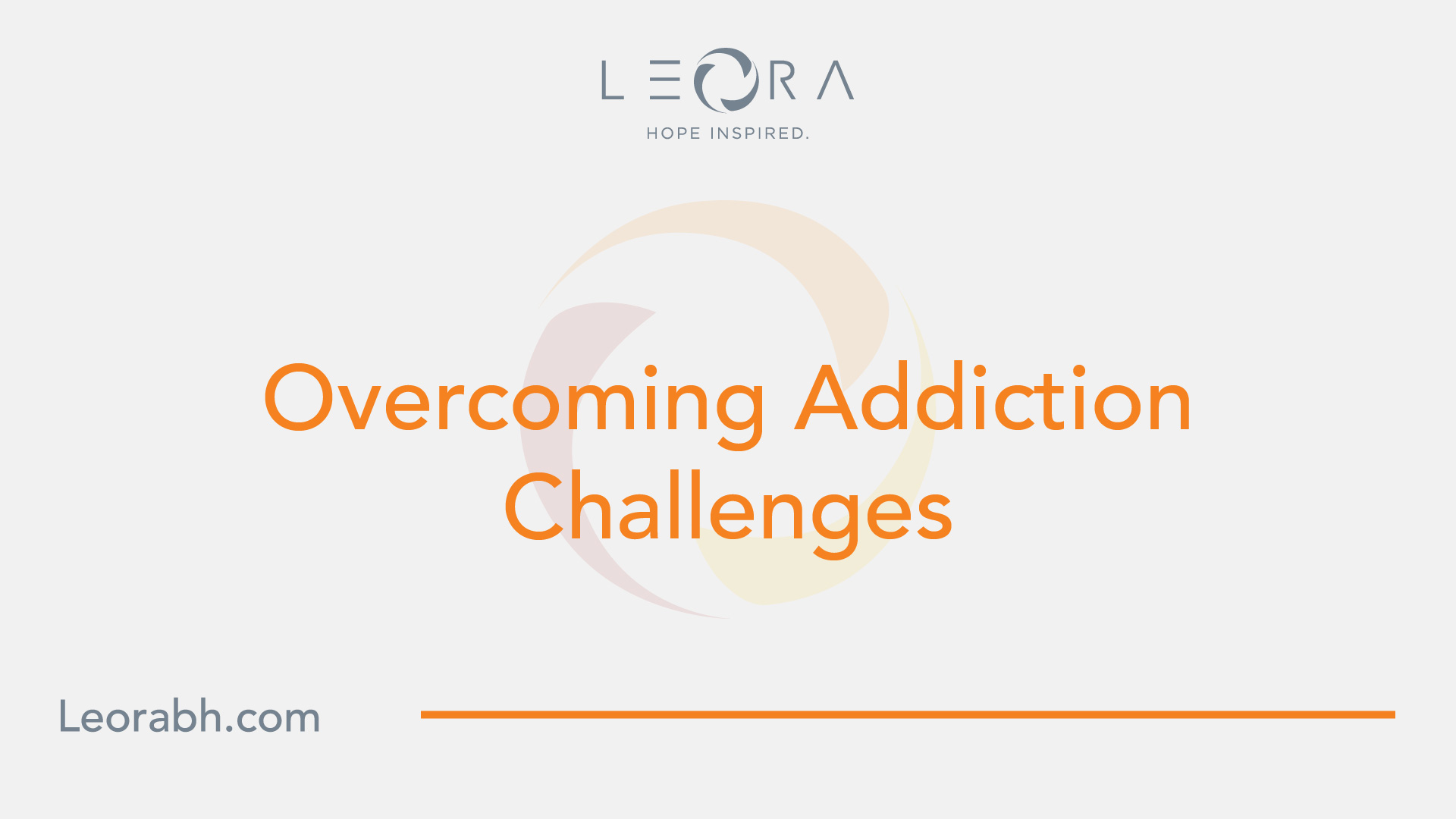Intensive Cocaine Treatment in Ohio
Discover intensive cocaine treatment in Ohio and take back control over addiction. Uncover personalized care and long-term recovery options.
Understanding Cocaine Addiction Treatment
Cocaine addiction is a serious issue that requires professional treatment and support. Understanding the various aspects of cocaine addiction treatment is crucial for those seeking help or supporting a loved one in their recovery journey.

The Cost of Drug Rehabilitation
Drug rehabilitation, including treatment for cocaine addiction, can vary significantly in cost. The average cost of drug rehabilitation per person is approximately $13,475. However, it's important to note that the cost can vary depending on factors such as the services offered, the length of stay, and the quality of the facility itself [1].
When considering the cost of drug rehabilitation, it's essential to understand that it is an investment in one's health and well-being. The expenses associated with treatment often cover various services, including medical care, therapy sessions, group counseling, and aftercare support. Many treatment facilities offer financial assistance and flexible payment options to help individuals access the care they need.
Types of Treatment Programs
There are different types of treatment programs available for cocaine addiction, each tailored to meet the specific needs of individuals seeking assistance. These programs can be broadly categorized into inpatient and outpatient rehab.
Inpatient Rehab
Inpatient rehab, also known as residential treatment, provides intensive care in a structured environment. Inpatient services usually last for a 28 to 30-day period and involve more extensive treatment. This type of program is beneficial for individuals who require a high level of support and around-the-clock care. It provides a safe and controlled environment where individuals can focus solely on their recovery.
Outpatient Rehab
Outpatient rehab programs are less extensive than inpatient or residential treatment plans. They offer flexibility for individuals who may have work or family commitments. Outpatient programs typically involve regular therapy sessions, counseling, and support group meetings. This type of treatment allows individuals to continue their daily routines while receiving the necessary support for their recovery journey.
It's important to note that the suitability of each treatment program varies depending on individual circumstances, the severity of addiction, and the recommendations of addiction professionals. A comprehensive assessment by qualified professionals can help determine the most suitable treatment approach.
Understanding the cost considerations and the types of treatment programs available is an essential step in navigating the journey towards overcoming cocaine addiction. Seeking guidance from addiction specialists and exploring the available resources can provide individuals and their loved ones with the information needed to make informed decisions and access the appropriate treatment for a successful recovery.
Inpatient vs. Outpatient Rehab
When it comes to cocaine addiction treatment, individuals have the option to choose between inpatient and outpatient rehab programs. Both types of programs have their own unique features and benefits, catering to the specific needs and preferences of individuals seeking recovery.

Intensive Inpatient Services
Inpatient rehab programs provide intensive and comprehensive treatment for individuals struggling with cocaine addiction. These programs typically involve a residential stay in a specialized facility. The duration of inpatient services can vary, with most programs lasting between 28 to 30 days, although long-term care options may extend from 6 to 12 months for more complex cases [1].
During an inpatient program, individuals receive round-the-clock care and support from a multidisciplinary team of healthcare professionals. The structured environment of inpatient rehab provides a safe and drug-free space for individuals to focus solely on their recovery. These programs often combine a range of therapeutic approaches, such as individual counseling, group therapy, behavioral therapies, and holistic interventions.
Intensive inpatient services offer a high level of supervision and monitoring, ensuring that individuals receive the necessary support during the early stages of recovery. This level of care can be particularly beneficial for individuals with severe addiction or those who require a more immersive treatment experience.
Flexible Outpatient Programs
Outpatient rehab programs are a less intensive alternative to inpatient treatment. These programs provide more flexibility, allowing individuals to receive treatment while still maintaining their daily responsibilities and commitments. Outpatient rehab is a suitable option for individuals who have a stable and supportive home environment, and whose addiction is less severe [1].
Outpatient programs typically involve scheduled therapy sessions and counseling appointments, which can be tailored to fit around an individual's work, school, or family obligations. These programs may also include intensive outpatient treatment, which offers additional levels of care to individuals who require more support than traditional outpatient programs can provide [2].
While outpatient rehab offers more flexibility, it still offers access to evidence-based therapies and addiction treatment services. This may include individual counseling, group therapy, relapse prevention education, and support groups. Outpatient programs can also provide ongoing support and guidance as individuals transition from intensive treatment to long-term recovery.
The decision between inpatient and outpatient rehab depends on various factors, such as the severity of addiction, the level of support at home, and individual preferences. It's important to consult with healthcare professionals or addiction specialists to determine the most appropriate treatment approach for effective recovery.
In Ohio, individuals seeking treatment for cocaine addiction can explore various options, including both inpatient and outpatient programs. There are specialized programs available for veterans, such as intensive outpatient treatment and partial hospitalization programs, which offer tailored care and support for those who have served in the military. Additionally, considering insurance coverage options can help individuals access the necessary treatment services in Ohio.
Treatment Components
When it comes to intensive cocaine addiction treatment, there are several components that play a crucial role in the recovery process. These components include the detoxification process and therapeutic approaches.
Detoxification Process
Detoxification, or detox for short, is often the first step in cocaine addiction treatment. The primary goal of detox is to rid the body of cocaine substances and initiate the brain to function without the drug. It helps individuals safely manage the physical and psychological withdrawal symptoms that may arise when cocaine use is stopped [4].
The detox process is typically supervised by medical professionals who provide support and assistance to individuals experiencing withdrawal symptoms. The duration of detox can vary depending on factors such as the severity of addiction and the individual's overall health. During this time, patients may receive medications and other interventions to manage withdrawal symptoms and ensure their safety and comfort.
It's important to note that detox alone is not sufficient for long-term recovery from cocaine addiction. It is usually followed by further treatment programs that address the underlying issues associated with addiction and provide individuals with the necessary tools and coping mechanisms to maintain sobriety.
Therapeutic Approaches
After detox, individuals often transition to residential treatment programs or outpatient programs that offer a range of therapeutic approaches to address the complex nature of cocaine addiction. These programs aim to equip individuals with knowledge of addiction triggers, symptom management, and new coping mechanisms [4].
Therapeutic approaches in cocaine addiction treatment may include a combination of evidence-based treatments and holistic therapies. Evidence-based treatments, such as cognitive-behavioral therapy (CBT), help individuals identify and modify negative thoughts and behaviors associated with drug use. This type of therapy focuses on developing healthy coping strategies and skills to prevent relapse.
Holistic therapies, on the other hand, take a more comprehensive approach to healing by addressing the mind, body, and spirit. These may include activities like art therapy, yoga, meditation, and outdoor recreational activities. The goal is to empower individuals to work towards their personal goals and lead productive lives in a comfortable, non-hospital-like setting [4].
By combining various therapeutic approaches, treatment centers aim to provide a comprehensive and individualized treatment experience that addresses the unique needs and challenges faced by individuals recovering from cocaine addiction. These treatment components work together to support individuals in overcoming addiction and building a foundation for long-term recovery.
It's important to seek professional help and guidance from reputable treatment centers to ensure a safe and effective journey towards recovery from cocaine addiction.
Customized Treatment Plans
When it comes to intensive cocaine addiction treatment in Ohio, customized treatment plans play a crucial role in addressing the unique needs of individuals seeking recovery. These plans focus on providing personalized care and incorporating holistic approaches to increase the chances of successful rehabilitation.
Personalized Care
One of the key aspects of a customized treatment plan is the emphasis on personalized care. Each person struggling with cocaine addiction has their own set of circumstances, challenges, and goals. To address these individual needs, treatment centers like Ethan Crossing Cleveland (Ethan Crossing Cleveland) and Midwest Recovery Center (Midwest Recovery Center) in Ohio create tailored programs that take into account the complexities of mental health conditions and the specific requirements of each individual.
By implementing personalized care, treatment plans can be adjusted to meet the evolving needs of the person in recovery. This individualized approach helps address environmental elements, brain changes, and social factors that contribute to cocaine addiction. As a result, patients receive the attention and support necessary to work towards their personal goals and lead productive lives.
Holistic Approaches
In addition to personalized care, holistic approaches are integrated into customized treatment plans for cocaine addiction. These approaches recognize that addiction affects the mind, body, and spirit, and aim to address all aspects of an individual's well-being.
Holistic treatment may include various evidence-based therapies and interventions that equip individuals with knowledge about addiction triggers, symptom management, and new coping mechanisms. By incorporating a range of therapies, such as cognitive-behavioral therapy, individual counseling, group therapy, and family therapy, treatment centers strive to provide comprehensive care that supports the recovery process [4].
Furthermore, a holistic approach may extend beyond traditional therapies to encompass alternative practices like mindfulness exercises, yoga, art therapy, and outdoor activities. These activities not only promote physical and mental well-being but also help individuals develop healthy habits and find enjoyment in the recovery journey [4].
By combining personalized care and holistic approaches, intensive cocaine addiction treatment plans in Ohio aim to provide comprehensive support for individuals seeking to overcome their addiction. These customized plans address the unique needs of each person, taking into consideration their mental health condition, environmental factors, brain changes, and social elements. With a focus on individualized care and holistic approaches, treatment centers strive to facilitate long-term recovery and empower individuals to reclaim control of their lives.

Overcoming Addiction Challenges
When it comes to overcoming cocaine addiction, individuals face several challenges on their journey to recovery. However, with the right support and a focus on long-term recovery, it is possible to reclaim control over one's life.
Supportive Environment
Creating a supportive environment is crucial in the treatment of cocaine addiction. Treatment centers like Ethan Crossing Cleveland provide state-of-the-art facilities in comfortable, non-hospital-like settings. These facilities allow patients to engage in outdoor activities and enjoyable therapy sessions, empowering them to work towards their personal goals and lead productive lives.
A supportive environment also extends to the treatment programs themselves. Residential treatment programs, such as those offered by Ethan Crossing Cleveland, provide various therapies, including holistic and evidence-based treatments. These programs equip individuals with knowledge of addiction triggers, symptom management, and new coping mechanisms, helping them navigate the challenges of addiction recovery.
Long-Term Recovery Focus
Cocaine addiction is a complex condition with significant long-term effects. The powerful cravings associated with cocaine dependence make it challenging to live without the drug, leading individuals to do anything to avoid the overwhelming withdrawal effects [5].
To address these challenges, treatment programs at Midwest Recovery Center in Toledo, OH, take a long-term recovery focus. They offer customized cocaine addiction treatment programs tailored to individual conditions, taking into account the complexities of mental health conditions, environmental elements, brain changes, and social factors. This comprehensive approach aims to facilitate long-term recovery and empower individuals to live drug-free lives.
The treatment programs incorporate various aspects of addiction, including environmental elements, brain changes, and social factors. They utilize pharmacological approaches and behavioral interventions to address the condition and support individuals in overcoming the challenges associated with cocaine addiction [5].
By focusing on creating a supportive environment and emphasizing long-term recovery, individuals can overcome the challenges of addiction and take significant steps towards a healthier and drug-free life. Seeking professional help from specialized treatment centers can provide the necessary support and guidance to navigate the complexities of cocaine addiction recovery.
Accessing Treatment in Ohio
When it comes to accessing intensive cocaine treatment in Ohio, there are specific programs available that cater to the needs of veterans and various insurance coverage options to consider. These resources aim to provide comprehensive and specialized support to individuals seeking help for their substance abuse.
Veteran-Specific Programs
According to the U.S. Department of Veterans Affairs (VA), Ohio is home to over 900,000 veterans, with nearly 100,000 veterans in Ohio battling substance abuse [3]. Recognizing the unique challenges faced by veterans, treatment programs in Ohio offer specialized services tailored to their needs.
Treatment services for veterans in Ohio can include medical detox, group therapy, medication-assisted treatment (MAT) for opioid use disorders, and specialized programs that provide group therapy and support groups with other veterans who have had similar experiences [3]. These programs aim to address the specific struggles veterans face, such as higher rates of PTSD and mental illness, homelessness, and unemployment.
To access veteran-specific programs, individuals can seek treatment at major hospital systems or VA medical centers, which are often located in cities like Cleveland, Dayton, Columbus, and Cincinnati. It's important to choose a reputable and high-quality rehab program, with some veterans preferring programs specialized for military veterans. Look for signs of quality, such as personalized treatment plans, experienced and licensed staff, and evidence-based therapies like cognitive-behavioral therapy (CBT) and dialectical behavior therapy (DBT) [3].
Insurance Coverage Options
When it comes to covering the costs of substance abuse treatment, veterans in Ohio have several options available to them. These include:
- TRICARE: TRICARE is military insurance similar to Medicaid or Medicare. Most drug rehab programs for veterans will be covered by TRICARE insurance, ensuring access to quality treatment [3].
- VA Health Benefits: Veterans can utilize their VA health benefits to access substance abuse treatment services. These benefits provide coverage for various treatment options and ensure that veterans receive the care they need [3].
- Private Insurance Plans: Veterans may also have private insurance plans that can be used to cover the costs of substance abuse treatment. It's important to check with the specific insurance provider to understand the coverage options available.
By utilizing these insurance coverage options, veterans in Ohio can overcome financial barriers and gain access to the necessary treatment for their recovery journey.
While veterans in Ohio may face obstacles such as lack of transportation, mental health stigma, social isolation, and homelessness, resources are available specifically for veterans to help them overcome these challenges and access quality addiction treatment [3]. It's important to reach out to these resources and take advantage of the support available to begin the path towards recovery.
References
Find Your Inner Light
Related Articles
Contact Us
Leora Behavioral Health offers a comprehensive addiction treatment programs to help you get your life back on track.
Our trained professionals will work with you to develop a personalized treatment plan that meets your unique needs. If you or someone you know is struggling with addiction, reach out to Leora Behavioral Health today.


.svg)





.svg)
.svg)
.svg)
.svg)